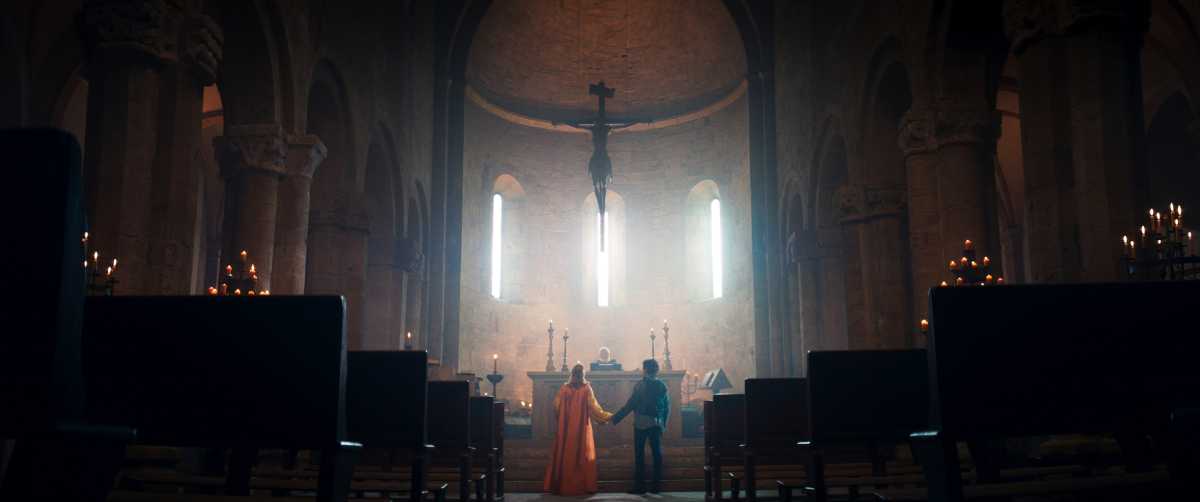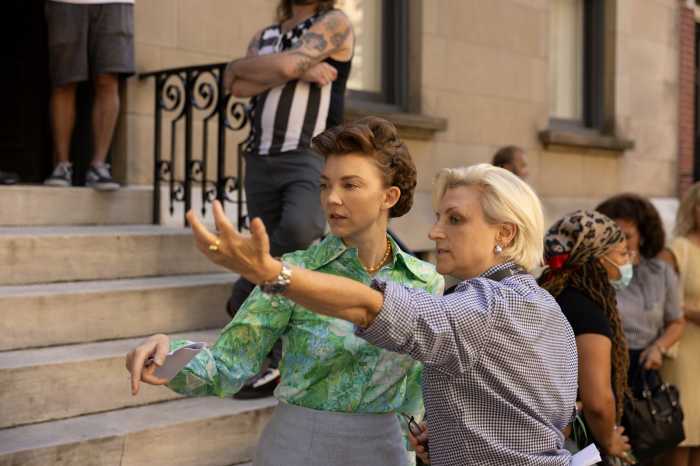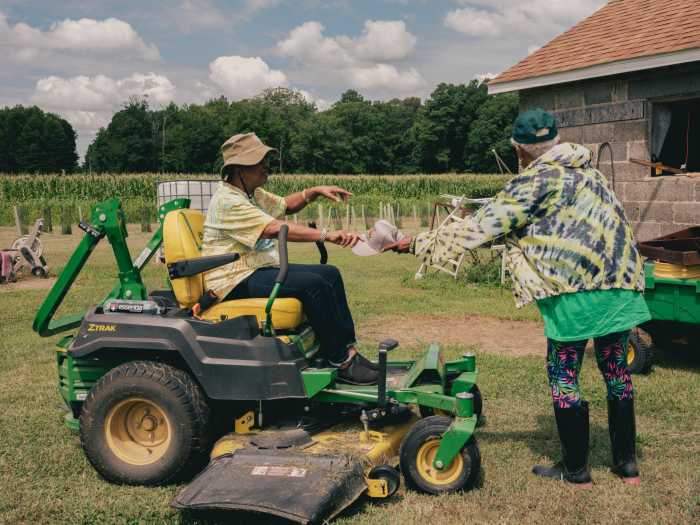You’ve seen Shakespeare’s classic story come to life before, but with ‘Juliet & Romeo‘, writer/director Timothy Bogart wanted to expand on the play’s themes and characters in a new way — one that involves a full soundtrack of original songs. This new musical film stars Clara Rugaard, Jamie Ward, Rebel Wilson, and Jason Isaacs, and tackles the tale of star-crossed lovers through singing, dancing and a lot of nuanced revisions.
And Bogart sat down with Metro to discuss them all.

Why choose to tell this famous love story in a new way?
When I was younger, I directed the play ‘Romeo and Juliet’, I think about four times. I remember vividly every time I did it, feeling like I’m not nailing it. There was something that I felt I just wasn’t getting. I did a good job, but I think one of the reasons I didn’t nail it, is that the play itself didn’t provide as many places to go with some of these other characters that I thought were so fascinating. And then I remember watching [Tom] Stoppard’s ‘Shakespeare In Love’—the themes I felt were so resonant and so contemporary. And I think that’s something true about all of Shakespeare’s [work], frankly. I don’t know how many playwrights have that same gift where the themes that they explored are no different than the ones we’re all wrestling with today.
Then, about 10 years ago, I was with my brother Evan Bogart, who wrote all the songs with his partner, Justin Gray for the film, I remember asking him about iambic pentameter and saying, ‘Why do you think Shakespeare used [it]?’ Because candidly, it’s tough. I remember him saying so effortlessly, because that was the poetry of his time. I said, well, that’s interesting—what do you think the poetry is of our time? And he said, pop music. Now, in fairness, he was a pop music writer. He had written ‘Halo’ for Beyonce and ‘SOS’ for Rihanna, so I see why he went there.
But he said, if you look at audiences today, especially the younger audiences, music is literally part of everything they do and everything they are. It feeds them in a way that virtually nothing at school does. That led me to this sense that music as an inner voice is a way to understand Shakespeare’s iambic pentameter and to tackle those themes. That’s really how it began.
Since you mentioned it being part of the reason you wrote the musical, which characters were fun for you to expand on for the film?
This may sound obvious, but I think it’s really important—but one was Juliet. My whole approach to Juliet to begin with was what would she be like today and how do I contextualize that in a way that is believable? They are 13 and 14 [in Shakespeare’s play.] It was a different time of when people got married, what age they got married, how long their lives were in 1301 when the lifespan was 30. Well, I don’t think [she would be a] 13 or 14-year-old, because people now live to be 80 or 90. It’s a very different thing. So being able to expand on who she is, where she is in her life at this age, where she wants to go, and similarly, not having Juliet be a passive character, which was crucial.
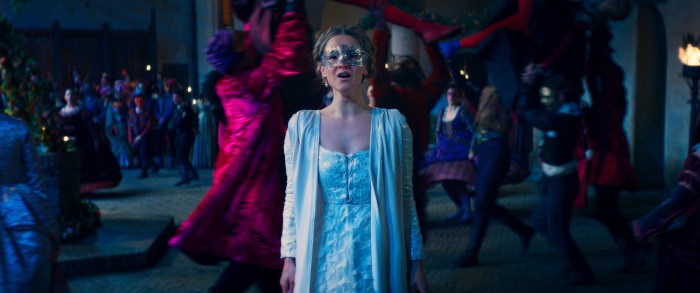
Also finding the right tone with Romeo to match that, to make sure these two are true equals as opposed to one over the other. On the other hand, maybe more interestingly, I would say something like Rebel Wilson’s character of Lady Capulet. In the text of Shakespeare’s play, there’s not a lot there with [her]… I don’t think people really think about the fact that Lady Capulet probably was Juliet when she was her age—served up for marriage and also having to live the life expected of her. So you have this wonderful exploration of a character who kind of went through the same path, knows the same stakes, wants more, but also understands her daughter’s requirements and life.
There are dance numbers, ballads, battles and other scenes that looked like there were a lot of layers. What’s the most challenging part of filming those scenes?
The most challenging is, and I also don’t think anybody really realizes this—nobody has ever directed the same scene with the same people in the same location before. Nobody knows how to do it right every single day. You’re making it up. I’ll give a great example: A terrible thing that happens, I think on almost every film, no matter how you plan and plot and hope, you end up shooting your most consequential scenes in your first days. So Day 1 of this movie, which was going to be a four-month shoot, we find ourselves on the bridge in Verona shooting the most consequential battle scene of the whole film.
The actors are just getting to know each other—some of them have been there for rehearsals, but some of them just came in two nights ago. We were probably up until 5 a.m. and there was another 30 minutes to go before the sun was going to come up on our last day on the bridge. But you do whatever it takes.
I saw it mentioned somewhere that this is actually meant to be a trilogy film series. What can you tell me about that?
From the jump, the intention was always three films. When I started going back and looking at this material, it wasn’t just Shakespeare’s play. The great discovery was, oh my gosh, he took all of it from source material before him, from seven different authors from Italy and from France and from the UK—a great poet named Arthur Brook—who all first orchestrated the characters, the storyline, the themes.
All of which then went back to real historical events that had happened in 1301 that they had found in church records. So going back to the original source material, I discovered between 1301 and 1303, you’re ending the medieval times and the birth of the Renaissance. The whole change of the world was happening at the exact same time. So I really do see this unbelievable journey of all of these characters. I can’t tell you where it ends at the end, but the story certainly is expected to grow into a pretty exciting place.
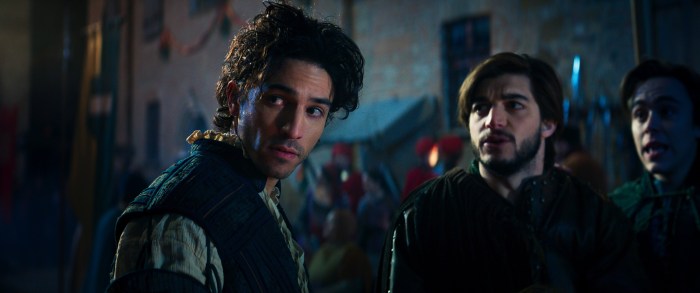
Overall, what do you hope people take away from ‘Juliet and Romeo’?
Ultimately, what I really hope the audience gets, and this may sound silly, but I think it’s true—I really hope they have fun. People need to have fun in the movies again. I think it’s so fascinating to watch what’s happened with ‘Minecraft‘ — my gosh, people are having the greatest time going to the movies. And ultimately, the themes are absolutely as resonant as ever before.
‘Juliet & Romeo‘ releases in theaters May 9.



